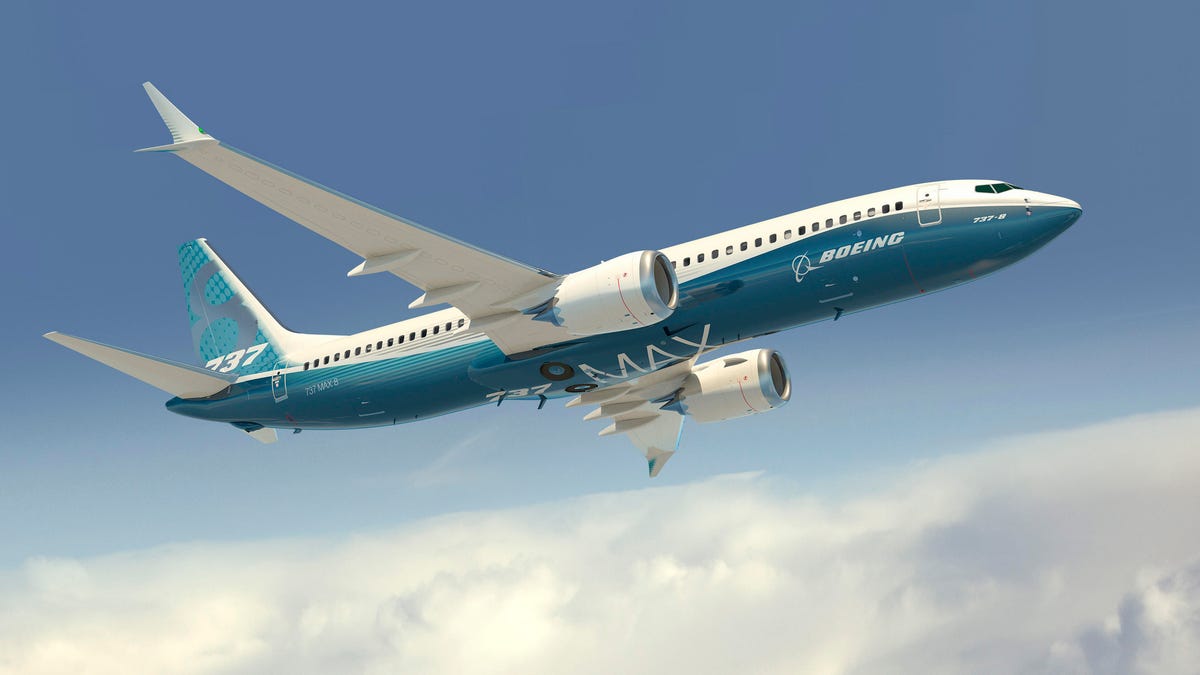Boeing 737 Max has flown 135 times since grounding
The aircraft maker takes a big financial hit as it works on a software fix for problems tied to two deadly crashes.

Boeing's 737 Max 8
Boeing on Wednesday offered a glimpse at how work is progressing on its troubled 737 Max aircraft -- and how much the plane's problems are costing it.
In its earnings report for the first quarter of the year, Boeing said it's making "steady progress" toward earning certification for a software update designed to fix an issue that contributed to two deadly crashes, after which the 737 Max was grounded for commercial flights around the world.
Since last month, Boeing has completed more than 135 test and production flights of the 737 Max, totaling more than 230 hours of air time, with that vital software update in place, the company said Wednesday.
But the grounding and a production cutback have put a significant dent in Boeing's finances. The company said Wednesday that a reduction in 737 deliveries contributed to a drop in first-quarter revenue for its commercial airplanes division, which came in at $11.8 billion, down 9% from $12.9 billion in the year-earlier period.
Boeing indicated that overall the 737 Max troubles would cost it in excess of $1 billion, according to The Wall Street Journal.
The 737 Max line was grounded in March after Ethiopian Airlines flight 302 crashed shortly after takeoff from Addis Ababa, killing 157 people. In October, Lion Air flight 610 went down in the Java Sea, killing 189 people. Both crashes involved the 737 Max 8 aircraft.
Boeing has said that a common link between the two crashes involved the erroneous activation of the aircraft's MCAS (Maneuvering Characteristics Augmentation System) function, which is designed to counter the potential for the plane's nose to pitch up during flight. The software update is intended to address flaws in that system.
Last week, Boeing said the MCAS update had reached its final form. The company is also working on training programs to help pilots and others better understand the MCAS system and how to deal with it.
Reuters reported Tuesday, citing unnamed sources, that Boeing expects the Federal Aviation Administration to approve its software fix in May and sees the 737 Max aircraft being ungrounded around the middle of July.
Regulators haven't yet released their official reports on the cause of the crashes.
Boeing has paused deliveries of new 737 Max aircraft and has reduced the production of airplanes in that line from 52 per month to 42.
"Across the company, we are focused on safety, returning the 737 MAX to service, and earning and re-earning the trust and confidence of customers, regulators and the flying public," Boeing CEO Dennis Muilenburg said in a statement Wednesday.
In trading Wednesday afternoon, Boeing stock was fluctuating around the break-even point at about $374 per share.
Originally posted at 7:44 a.m PT.
Updates, 8:51 a.m.: Includes background on the crashes and the MCAS system; 11:54 a.m.: Adds Boeing stock price information, more details about the costs of the 737 Max problems and the company's reported expectations for when the software fix will be approved.

